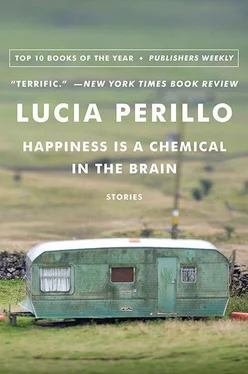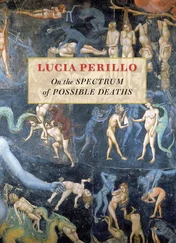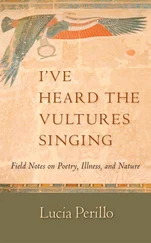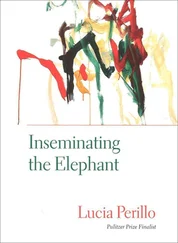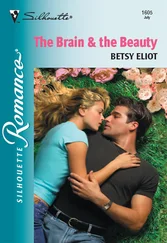He tried the motel TV but now, at midday, found only soap operas and cooking shows. The motel TV sat next to their own set, a thirty-six-incher that Jay had brought in from the car last night so that it wouldn’t get stolen. Arnie’d brought in his transforming lizard, and for a while he tried playing with it but soon realized that it was the wrong toy to bring because it did not have any purpose beyond changing from one thing to another. And it could not be the two things it was at once — like you could not have the lizard do battle with the spaceship. Too slow to be constantly changing back and forth.
Last night he’d also brought in the fishing pole, just a cheap Zebco rig, nothing to worry about getting stolen, but still. Its reel was made of plastic and shaped like the nose cone of a rocket. He drew back the drapes and opened the balcony’s sliding door. It overlooked the dune behind the motel, which was littered with the random plastic that the last storm had delivered up. He could not see the ocean from here but could hear its pulsing underneath the steadier howling of the wind.
He stepped back inside and slid the door shut, his ears humming in the quiet. He could walk to the beach, but his jacket was still locked in the car, and then he thought about what the man had said: You got to build up your tolerance for rain. He searched the pocket of Jay’s crumpled jeans but did not find the keys there — he must’ve had them in his flannel shirt. He thought about knocking on the bathroom door then, but could not bring himself to do it. The two of them would be in the tub, flopping around like seals.
So he sat on his bed, eating his cherry pie and watching a fat man in a chef’s hat make something called polenta. It looked like what prisoners of war would have to eat. Even with the TV on, Arnie could hear Jay’s laughter made husky with smoke, the water spattering through it. His mother’s laugh reminded him of a vine, tendrils wrapping themselves on anything that would hold.
When he finished eating, what Arnie did was stab a piece of the other pie on the hook of his Zebco. Out on the balcony, he pulled the damp sleeves of his sweatshirt down around his fists. Ten yards off in the dune there was a considerable puddle of rainwater, surrounded by broken glass and one abandoned flip-flop. No fish were leaping from it, not that he could see, but two seagulls seemed very interested in whatever lay beneath the surface: they nosed the water and threw drops over their heads. And if you could drive on the beach here, you might just be able to fish in a puddle. Who could tell how things worked now that they’d come to the end of the earth?
Arnie’s first cast bounced off the roof overhang on the balcony. His next landed in the mud below, and failed to attract the seagulls’ notice. But on the third cast he was able to make his pie-piece land near the rim of the puddle: the two birds gawked at it for a moment, wondering what it was. Then one pecked gingerly and finally managed to pull a piece of the piece loose. Swallowed. Tried to go back for more. This discovery — that the waxy clod was edible — caused the other bird to turn up the volume of its squawk. The two birds commenced lunging in earnest, one stabbing its beak at the pie-chunk while the other huffed its feathers, and while they were caught up in this game of feints and counter-feints a bigger, whiter gull swooped down and gobbled up the hook.
Once it realized it was snagged, the bird landed, then hopped on the ground for a while with a look of confusion that soon gave way to rage. The bird flapped in the puddle and made the sound kyee! kyee! while its beak snapped open and shut. Mud flew as the bird slapped the puddle with its wings: kyee! But little by little, the bird wore out its fury, until its beak hung open as if it were panting, its tongue flickering in and out, and when it next hit the apex of one of its hops, Arnie reeled in some line: tick tick tick tick tick. Then the bird hung on the end of the line between bursts of flapping and pendulating from side to side. Arnie was worried that if the bird panicked, the hook would tear out of its mouth, so he reeled with a slow rhythm of pauses and starts: tick tick tick tick. He had this idea that maybe if he could get the bird into the dim light of the motel room, he could hypnotize it somehow. He could hold it under his arm and stroke its throat until it opened up and let him gently remove the hook.
“Easy,” he chanted as the bird came closer, growing larger as it did, blotting out a bigger portion of the sky. Tired now, the bird’s wings fluttered inefficiently and its pink legs dangled like a puppet’s. Slowly, and with just a few feet of line played out between them, Arnie backed into the room, reeling the bird with him.
For a minute the room’s carpeted interior seemed to sedate the bird as it stood on what his mother had called the credenza, ratcheting its head like an emperor on a balcony, surveying the crowd. But then the gull caught sight of itself in the mirror and burst into a renewed frenzy. It threw itself against this other bird, knocking over the coffee that was on the motel TV, and, finding no bird there, it tried the other corners of the room, heaving itself against the drapes and toppling a lamp. The room’s low ceiling further amplified the bird, until it was as big as an eagle, with a beak the size of a gaffing hook.
Finally the gull came to rest again on the credenza, next to the two TVs, a perch from which it looked at Arnie with its yellow eyes. Its beak had an orange spot that bobbled as the bird swiveled the line in its mouth. Though its look was fierce, Arnie could see its heart beating through the feathers. The skin of its breast quivered underneath the white pelt.
Now he could hear them in the bathroom, the water splashing and the tendrils of her laughter wrapping themselves around her normal breaths. He had never hypnotized anything before, but he knew the trick required a shiny object. He used the earrings his mother had left on the nightstand, which were made from Chinese coins, and he swung one of these before the bird: tick tock tick tock. The bird’s gaze followed the coin with a slight movement of its head, suspicious but calmer now. Tick. . tock. . tick. . tock. But when his mother suddenly emitted a shrill noise that sounded as if it had been made with the last air left inside her, the bird broke off its concentration. Before it could start flapping Arnie lunged at it and trapped it in his armpit. When the bird snapped at his fingers, he drove them deep into its mouth, worked loose the barb from the tender throat skin, and teased the hook out.
Then came the best part, when Arnie took the bird out to the balcony and watched it fly off like a braggart, as if this were all part of a plan the bird had itself dreamed up. That’s when Jay came out of the bathroom with a towel wrapped around his waist. He had no hair at all on his chest, which supported a sinewy, muscley mass.
“What the hell were you doing out here?” He wasn’t angry; his voice sounded distracted, as if he had been sleeping. “Jumping on the bed?”
“Caught a bird,” Arnie said, holding up the pinched spot on his thumb where the bird had almost broken the skin. “By accident. I was practicing my cast.”
Then his mother came out of the bathroom, wearing Jay’s flannel shirt.
“What happened?”
“He caught a bird,” Jay said. His mother’s grin was more of a stunned than a happy look, as if she’d just been knocked down by a truck.
“A bird, huh?” She looked around the room, picked up what was left of Jay’s cherry pie, and licked the filling from its center. “Where’s that coffee?” she said.
“The bird knocked it over.” He thought his mother would be mad, but she just shrugged as she studied the cup.
Читать дальше
